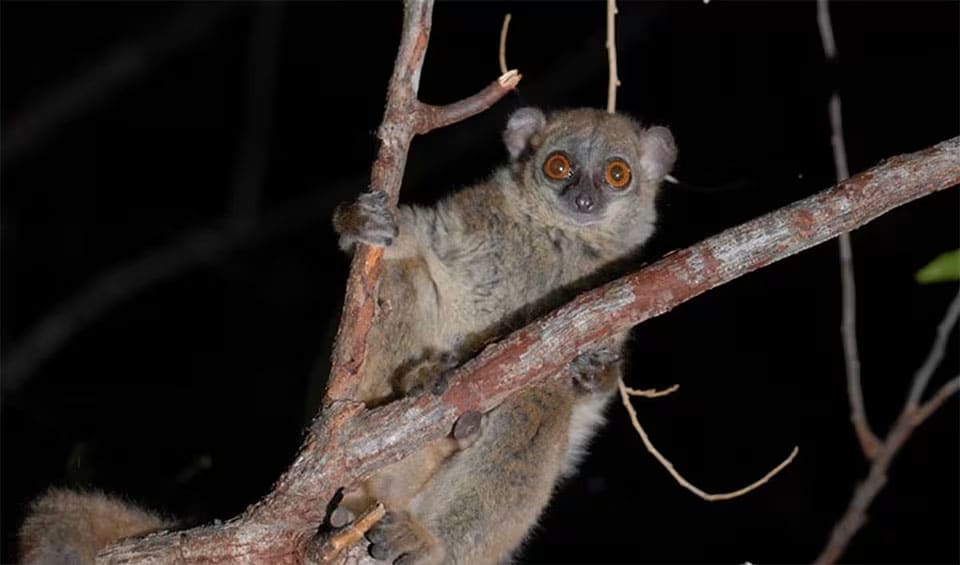Lepilemur – Sportive lemurs
These Madagascans were commonly named “weasel lemur” in the past due to their swiftness
The sportive lemurs, belonging to the family Lepilemuridae, represent a fascinating and diverse group of medium-sized primates that are endemic to Madagascar, an island renowned for its unique biodiversity and high level of endemism. This family, previously known as Megaladapidae, underwent a nomenclatural revision following the reclassification of the extinct genus Megaladapis, emphasizing the dynamic nature of taxonomic studies in primatology and conservation biology.
Sportive lemurs exhibit a variety of fur colors, ranging from reddish to grey-brown on their dorsal (back) side, contrasted with a whitish-yellow underbelly. This coloration provides excellent camouflage in their natural forest habitats, allowing them to blend seamlessly into the background and avoid predation. They possess short heads complemented by round, large ears, which are crucial for detecting the presence of predators and communicating with conspecifics (members of the same species) in the dense forests after dark.
Arboreal by nature, sportive lemurs have adapted remarkably well to life in the trees. They are endowed with strong hind legs that enable them to make long, powerful jumps from tree to tree, an ability that is central to their locomotion and foraging strategies. This agility is vital for navigating the complex vertical landscape of Madagascar’s forests, where they spend the majority of their lives.
Strictly nocturnal, sportive lemurs emerge from their daytime resting spots in tree hollows or dense foliage to forage under the cover of darkness. Their diet is primarily herbivorous, with a strong preference for leaves, which they are adept at digesting thanks to a highly specialized cecum. This part of their digestive system harbors bacteria that help break down the cellulose in leaves, allowing them to extract the necessary nutrients from their fibrous diet. Despite the abundance of leaves, their food choice is selective, often preferring leaves from specific tree species that offer higher nutritional value.a
Species in this genus
Northern sportive lemur
The loss of their homes, coupled with hunting for bushmeat, has pushed them to the brink of extinction
Ankarana sportive lemur
Once thought to be the same species as Sahafary sportive lemurs until molecular and cytogenetic analyses showed their genetic differences in the early 2000s



